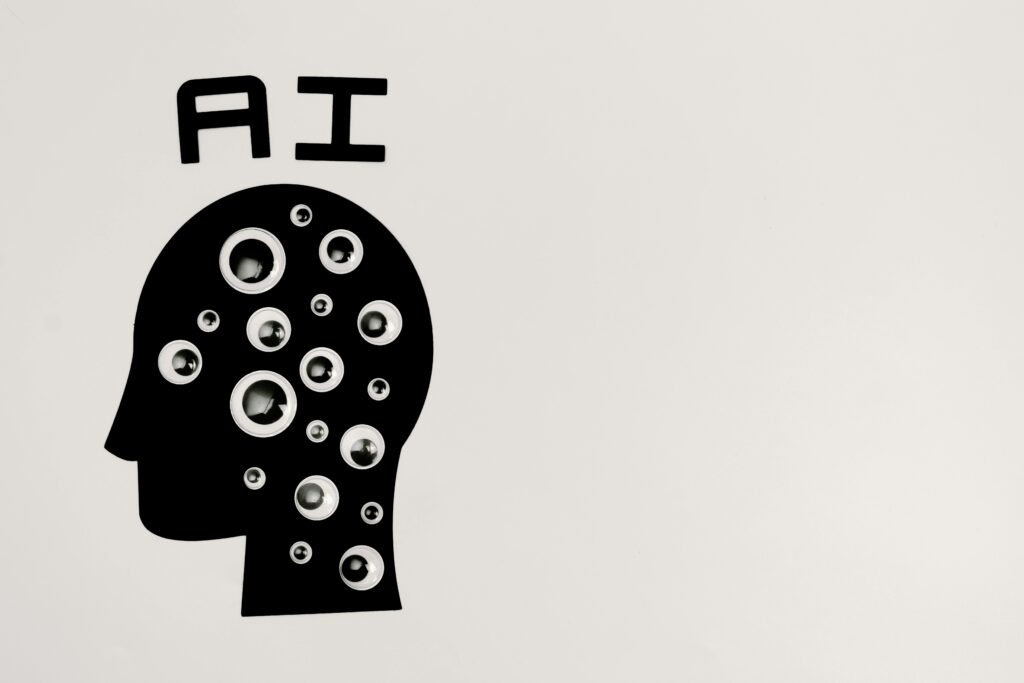In the ever-evolving digital marketing landscape, Artificial Intelligence (AI) has become a revolutionary force, reshaping the way advertisers connect with their target audiences. In this article, we look into the integration of AI in advertising, with a particular focus on its transformative role in automating the ad creation process.

Photo by Tara Winstead
Navigating the AI Revolution in Advertising
As we navigate the digital age, the advertising industry is undergoing a profound transformation, with AI taking center stage. AI, a pivotal branch of computer science empowering machines to emulate human intelligence, finds compelling applications in the creation and optimization of advertising content.
AI’s Pivotal Role in Streamlining Ad Creation
Dynamic Content Generation
AI is redefining advertising through dynamic content generation. Traditionally, ad creation involved labor-intensive tasks, from visual design to crafting compelling copy. AI streamlines this process by employing algorithms that analyze extensive datasets, identifying patterns and preferences to generate dynamic, personalized content tailored to specific audience segments.
Programmatic Advertising
At the heart of automated ad creation lies AI-driven programmatic advertising. Leveraging real-time bidding and automated ad placements, AI algorithms optimize ad delivery based on user behavior, ensuring the seamless delivery of the right ad to the right audience at the optimal time. This not only enhances efficiency but also elevates the overall effectiveness of advertising campaigns.
Predictive Analytics for Targeted Audiences
AI’s analytical prowess extends to predictive modeling, enabling advertisers to anticipate consumer behavior. By harnessing machine learning algorithms, advertisers can identify potential customer segments, predict their preferences, and customize ad content accordingly. This precision in targeting ensures that ads resonate with the intended audience, leading to heightened engagement rates.
Transforming Creativity through Collaboration
Contrary to concerns about AI replacing human creativity, it acts as a catalyst for innovation in ad design. By automating repetitive tasks, AI liberates human creative teams to focus on strategic thinking and ideation. The collaboration between human creativity and AI-driven automation results in groundbreaking campaigns that effortlessly blend innovation and emotional resonance.
Challenges and Ethical Considerations in AI-Generated Ads
While AI brings unprecedented benefits to ad creation, challenges arise, including privacy concerns, potential biases in algorithms, and ethical implications of personalized advertising. Striking a balance between leveraging AI for efficiency and ensuring ethical advertising practices is crucial for building trust with consumers.
Performance Metrics for AI-Generated Ads
Evaluating the success of AI-generated ads requires an understanding of key performance metrics. Click-through rates, conversion rates, and engagement metrics become pivotal indicators of an ad’s effectiveness. AI analytics tools provide advertisers with real-time insights, facilitating agile adjustments to campaigns based on performance data.
AI Limitations in Advertising: Balancing Automation and Oversight
While the integration of AI in advertising offers immense opportunities, it’s crucial to acknowledge and address its limitations. The interpretability of AI algorithms poses a significant challenge as the decision-making process within complex neural networks becomes intricate. Advertisers must navigate the “black box” nature of AI, ensuring a delicate balance between efficiency gained through automation and the need for human oversight to address ethical considerations and potential biases.
The Future of AI in Advertising: Endless Possibilities
As technology advances, the future of AI in advertising holds exciting possibilities, from enhanced natural language processing for conversational ads to the integration of augmented reality. The evolution of AI promises to push the boundaries of creativity and personalization in advertising, paving the way for a more automated, intelligent, and personalized advertising future.
Conclusion
In conclusion, the advent of AI ad generators marks a transformative era for the advertising industry. The seamless integration of AI in automating the ad creation process not only streamlines operations but also enhances creativity and effectiveness. As advertisers navigate this AI-powered landscape, finding the equilibrium between innovation and ethical considerations becomes paramount for building enduring connections with consumers in the digital age. The journey towards a more automated, intelligent, and personalized advertising future is well underway, offering limitless possibilities.